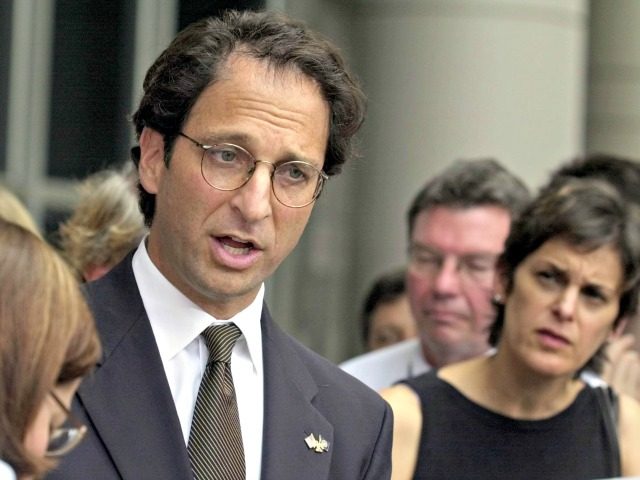A Sunday report from Politico’s Josh Gerstein published two internal FBI documents that suggest Associated Press reporters gave investigators linked to special counsel Robert Mueller’s “Russia” probe information they had uncovered about one-time Trump campaign manager Paul Manafort at an off-the-record meeting last year.
The April 11, 2017, meeting, according to one of the memos, was arraigned by Mueller’s controversial Clinton-allied deputy, Andrew Weissmann, to “obtain documents from the AP reporters that were related to their investigative reports on Paul Manafort.” Weissman would later be moved from his post as chief of the Justice Department’s Fraud Section to a senior prosecutor’s position within Mueller’s investigation.
As Gerstein recounts, the memos indicate that the four unnamed AP reporters “advised” the FBI of the existence of and provided the FBI with the code to a storage unit Manafort kept in Alexandria, Virginia. Those reporters told the FBI they thought damning evidence about Manafort’s dealings in eastern Europe might be inside. According to Politico, one of the memo’s authors, FBI agent Jeff Pfeiffer, later testified that this tip may have led to the FBI’s discovery of the unit, although he was not certain.
The reporters also told the agents they thought Manafort was guilty of Foreign Agent Registration Act (FARA) violations, and one memo notes they had documents supporting these allegations. Although one of the memos includes detailed discussion of a so-called “black ledger” containing payments from Manafort’s Ukrainian clients, it does not specifically say they provided such a ledger to the FBI.
Less than seven months later, in October 2017, Manafort would be charged with felonies, including FARA violations.
The memos go further, suggesting the AP reporters were looking for something in return. “No commitments were made to assist the reporters in their further investigation into the life and activities of Paul Manafort,” one reads.
It is clear, however, that Weissman did seek to steer the reporters’ investigation, possibly to further his own investigation of Manafort. For example, he told them to, as Gerstein puts it, “ask Cypriot officials whether they had given the U.S. all the information it sought about Manafort’s bank dealings there or just a portion of it[.]”
Gerstein quotes one journalism expert, University of Maryland Professor Mark Feldstein, as being “surprised” by the “unorthodox” conduct of the reporters in this case, although he offers the defense that the FBI might not be accurately recording the events in question.
AP spokeswoman Lauren Easton flat out denied the collusion allegations. “Associated Press journalists met with representatives from the Department of Justice in an effort to get information on stories they were reporting, as reporters do,” she told Politico. “During the course of the meeting, they asked DOJ representatives about a storage locker belonging to Paul Manafort, without sharing its name or location.”
Beyond the AP-FBI collusion allegations themselves, Manafort’s legal team raised questions about whether Weissman has breached grand jury secrecy to provide information to the journalists, a potentially serious violation of federal court rules. “The meeting raises serious concerns about whether a violation of grand jury secrecy occurred. Now, based on the FBI’s own notes of the meeting, it is beyond question that a hearing is warranted,” Gerstein said, quoting a Friday court filing in one of the two criminal trials Manafort now faces.

COMMENTS
Please let us know if you're having issues with commenting.